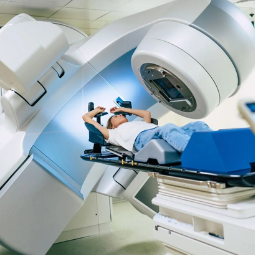- Home
- About
- Hospitals
-
Treatments
- Orthopedic & Spine
- Knee Replacement
- Carpal Tunnel Release
- Rotator Cuff Repair
- Meniscus Repair / Meniscectomy
- Total Hip Replacement (THR)
- Total Shoulder Replacement
- Arthroscopy
- Ligament Reconstruction
- Spinal Fusion
- Discectomy
- Laminectomy
- Spinal Decompression
- Vertebroplasty and Kyphoplasty
- Fracture Repair
- ACL Reconstruction
- Tendon Repair
- Osteotomy
- Amputation
- Pediatric and Adult Cardiac
- Neuroscience
- Oncology
- Nephrology & KTP
- Gastroenterology & Hepatobiliary
- Obstetrics and Gynaecology
- Infertility
- Dental & Maxillofacial
- Plastic & Cosmetic Surgery
- Rhinoplasty
- Blepharoplasty (Eyelid Surgery)
- Facelift (Rhytidectomy)
- Breast Augmentation (Mammoplasty)
- Breast Reduction (Mammoplasty)
- Breast Lift (Mastopexy)
- Liposuction
- Abdominoplasty (Tummy Tuck)
- Brazilian Butt Lift (BBL)
- Lip Augmentation
- Breast Reconstruction
- Cleft Lip and Palate Repair
- Scar Revision
- Burn Reconstruction
- Botox Injection
- Ophthalmology
- Otolaryngology (ENT)
- Endocrinology
- General and Minimal Invasive Surgery
- Pulmonology
- Rheumatology
- Urology
- General Medicine
- Ayurvedic Treatment
- Orthopedic & Spine
- Doctors
- Contact Us
Oncology
Oncology is the branch of medicine that deals with
the diagnosis, treatment, and prevention of cancer. A medical professional who
specializes in oncology is known as an oncologist. Oncologists are responsible
for the care of cancer patients, and they work in various subspecialties of
oncology, including medical oncology, surgical oncology, and radiation
oncology. They collaborate with other healthcare providers to provide
comprehensive cancer care.
Here are some key aspects of
oncology:
Diagnosis: Oncologists are trained to
diagnose cancer through various methods, such as physical examinations, imaging
studies (like X-rays, CT scans, and MRIs), biopsies, and laboratory tests. They
determine the type, stage, and extent of cancer, which is crucial for
developing an appropriate treatment plan.
Treatment: Oncologists are involved in
designing and implementing treatment plans for cancer patients. These plans may
include surgery, chemotherapy, radiation therapy, immunotherapy, targeted
therapy, hormone therapy, and stem cell transplants, among other interventions.
The choice of treatment depends on the type and stage of cancer, as well as the
patient's overall health and preferences.
Cancer Care Teams:
Oncologists work closely with other healthcare professionals, including surgeons,
radiologists, pathologists, nurses, and support staff, to provide comprehensive
and multidisciplinary care. They also often collaborate with palliative care
specialists to manage symptoms and improve the quality of life for cancer
patients.
Research: Many oncologists are involved
in cancer research to develop new therapies, improve existing treatments, and
advance our understanding of cancer biology. Clinical trials, which are
research studies involving patients, are essential for evaluating the safety
and effectiveness of new treatments.
Supportive Care:
Oncologists also address the supportive care needs of cancer patients. This includes
managing the side effects of treatment, pain management, nutritional support,
and addressing psychological and emotional issues related to cancer.
Prevention and Screening:
Oncologists are often involved in cancer prevention efforts, including
promoting healthy lifestyles and providing guidance on cancer screening and
early detection methods. Identifying cancer in its early stages can
significantly improve the chances of successful treatment.
Genetic Counselling:
Some oncologists specialize in cancer genetics and work with patients who have
a family history of cancer to assess their risk and provide counselling on
genetic testing and risk reduction strategies.
Survivorship Care: Oncologists also provide long-term follow-up care for cancer survivors, monitoring for recurrence and addressing the health and psychosocial needs of individuals who have completed cancer treatment.
Oncology is a diverse and rapidly evolving field due to ongoing advancements in cancer research and treatment. It plays a crucial role in the fight against cancer, aiming to improve the quality of life and outcomes for cancer patients, as well as finding ways to prevent and ultimately cure cancer.
Skylar Healthcare is your trusted partner in the fight against cancer. Our dedicated team of Oncologists and specialists is committed to providing comprehensive and compassionate care for patients battling cancer. Whether you're seeking treatment for a specific type of cancer, require advanced therapies, or need support during your cancer journey, we are here to offer personalized solutions.
Our state-of-the-art facilities and cutting-edge treatment options ensure that you receive the highest quality oncology care available. At Skylar Healthcare, we are driven by the mission to enhance your well-being and provide hope in the face of cancer. Choose us for excellence in oncology treatment and a patient-centered approach to cancer care.











.png)